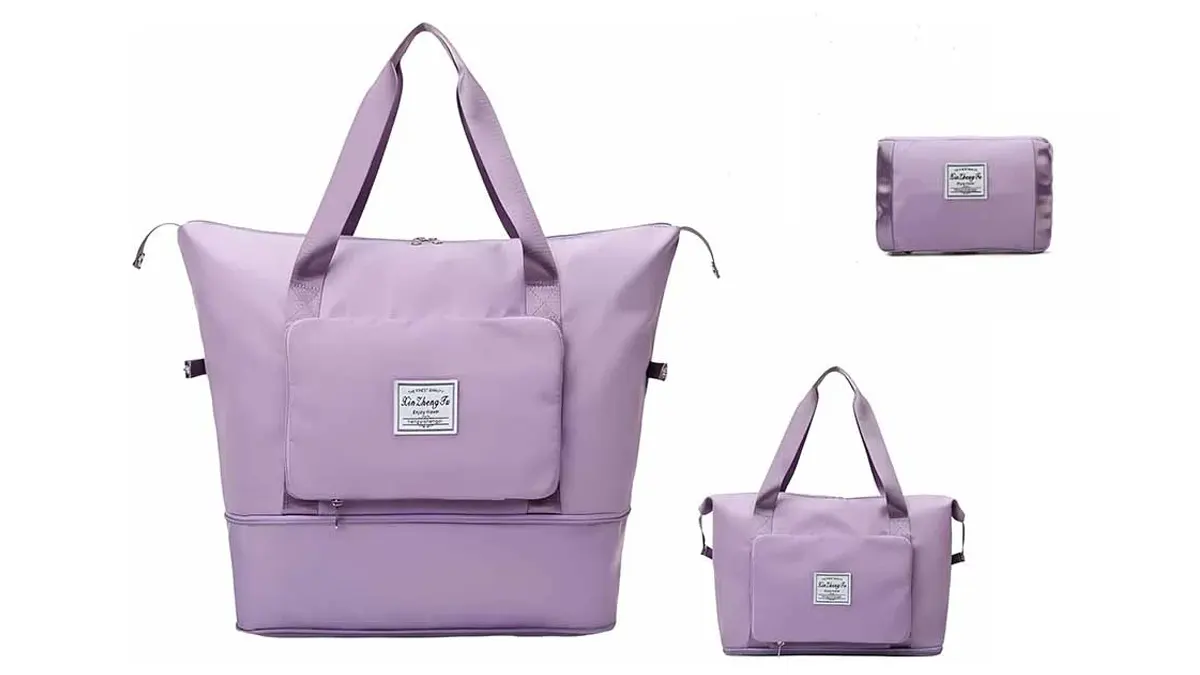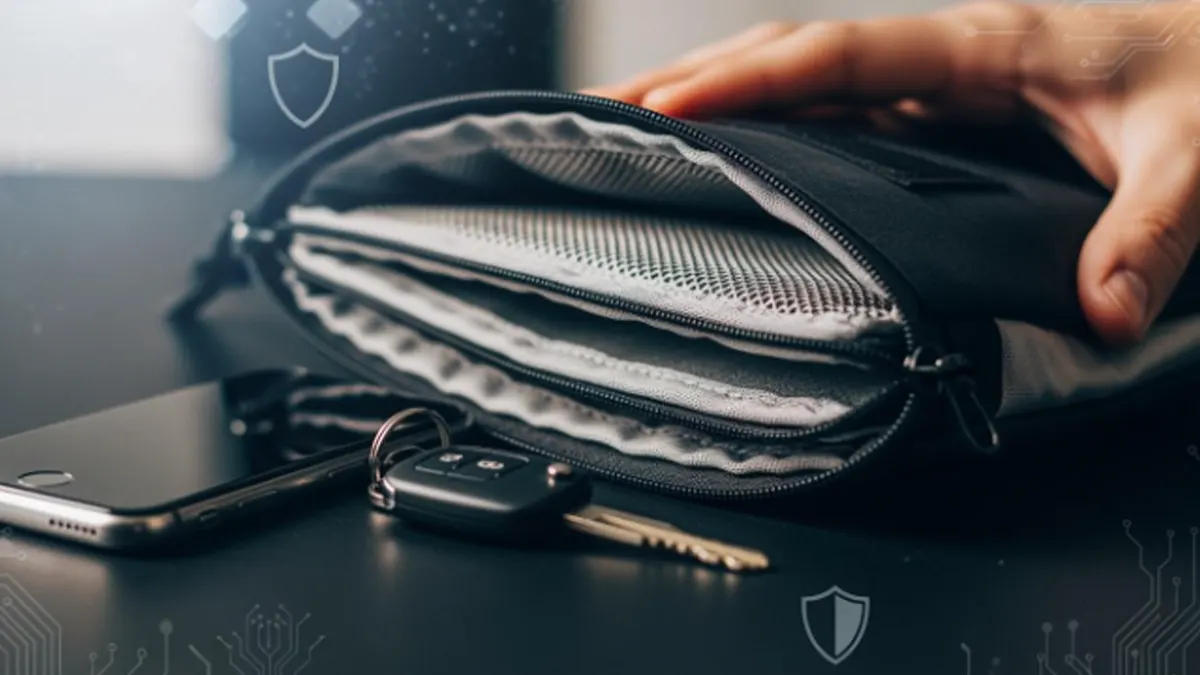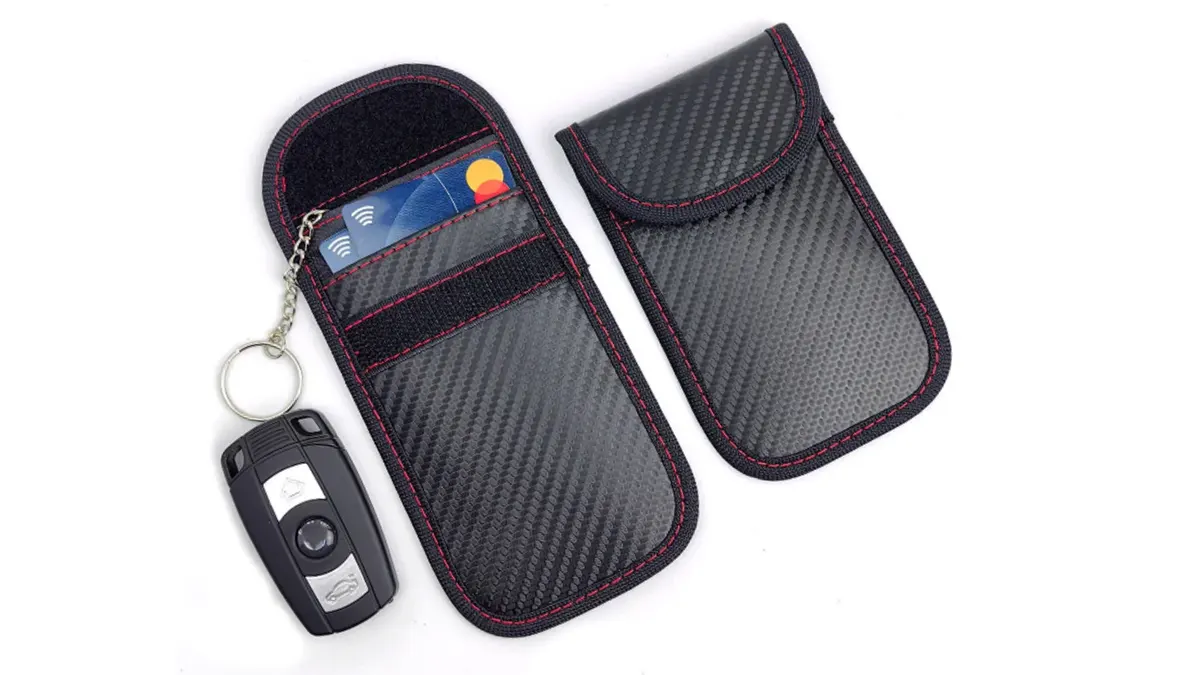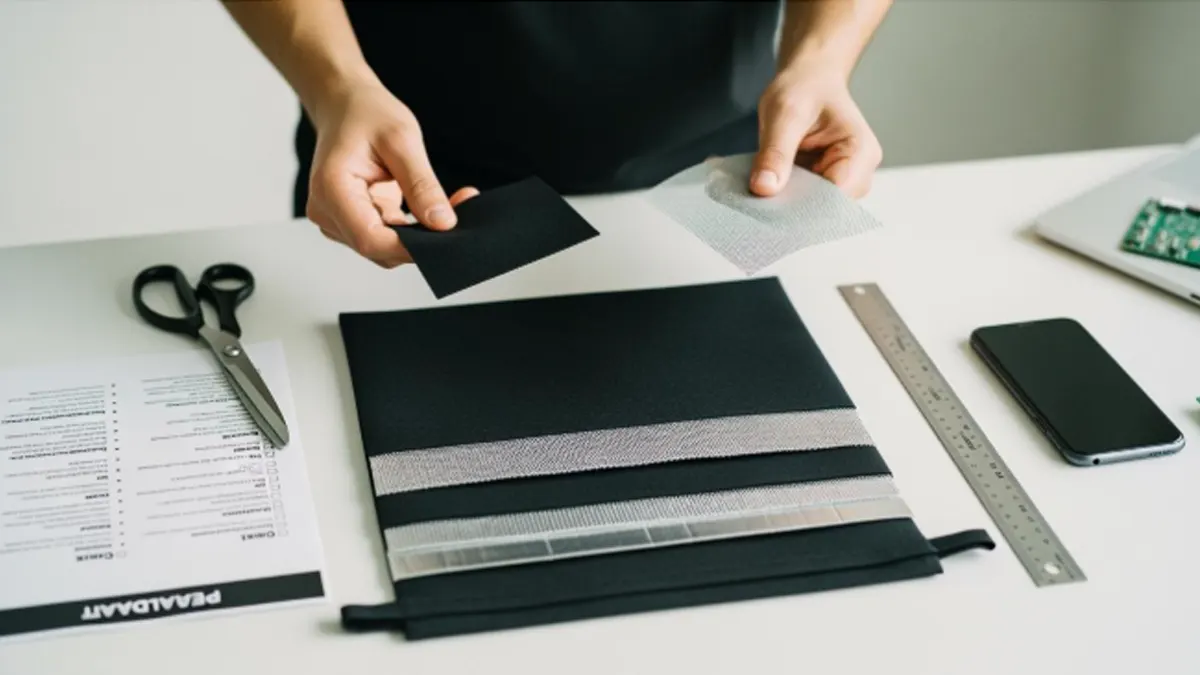
If you want the best everyday carry, you should think about what you need and how much you care about convenience. The sling bag vs backpack choice depends on your daily routine and what you bring with you. Sling bags help you grab your things fast and are good for city life. You can reach your essentials quickly and keep them close. Backpacks are better for carrying heavy things and feel more comfortable because they spread the weight. Both types depend on what you need, how easy you want things to be, and how you go through your day. Take some time to think about which things and which kind of convenience work for you.
- Essentials: What do you need every day?
- Convenience: Do you want quick access or comfort?
- Style: Does your bag fit your look and what you do?
- Capacity: Can your bag hold everything you need without being too big?
- Versatility: Will your bag work in different situations?
Think about what you need and how easy you want things to be. Pick the bag that feels right for your daily life.
Key Takeaways
- Think about what you need every day when picking a sling bag or backpack.
- Sling bags let you grab things fast. They are good for city life and short trips.
- Backpacks hold more and feel better with heavy stuff. They are great for school or work.
- Sling bags make you pack less. This helps you stay neat and move easily.
- Find bags with smart pockets and dividers. These keep your things safe.
- Pick a bag that matches your style. It should help you fit in, especially in busy places.
- Try both bags with your things. See which one feels best for you.
- Always look for safety features like locking zippers and anti-theft designs. These keep your stuff safe.
Sling Bag vs Backpack: Key Differences
Size & Capacity
Daily Essentials
When you compare sling bag vs backpack, you notice a big difference in how much each can carry. A backpack gives you plenty of space for books, a laptop, lunch, and maybe even a jacket. You can pack everything you need for school or work without worrying about running out of room. A sling bag is more compact, so you need to think about what you really need each day. If you only carry your phone, wallet, keys, and maybe a small tablet, a sling bag works well. You get efficient packing because you focus on the essentials. You avoid stuffing your bag with things you never use.
Minimalist Packing
Do you like to keep things simple? The sling bag vs backpack debate often comes down to how much you want to carry. Sling bags encourage minimalist packing. You choose only what you need, which helps you stay organized and light on your feet. A compact sling bag makes it easy to move around the city or hop on public transport. You don’t feel weighed down. Backpacks let you carry more, but sometimes that means you pack things you don’t need. If you want efficient packing and a lighter load, a sling bag is the better choice.
Accessibility
Quick Access
Easy access is a huge advantage when you look at sling bag vs backpack. Sling bags let you swing the bag to your chest and grab what you need without taking it off. You can reach your phone, wallet, or transit card in seconds. This is perfect for crowded places or when you need something fast. Backpacks usually require you to take them off and dig through the main compartment. You lose time and might feel awkward in busy spots. If you want easy access to your essentials, a sling bag makes your life simpler.
Organization
Both sling bags and backpacks offer smart ways to keep your things organized. You want efficient packing, so look for bags with special pockets and dividers. Here’s a quick look at some design features that help you stay organized:
| Design Feature | Description |
|---|---|
| Dedicated Compartments | Specific pockets for common items like tablets, sunglasses, and quick-access items. |
| Internal Dividers and Pockets | Mesh pockets and elastic loops to secure smaller items, preventing jumbling. |
| External Quick-Access Pockets | Zippered or magnetic pockets for immediate access to frequently used items. |
| Hidden Security Pockets | Discreet pockets for valuables, enhancing security against theft. |
| Key Leashes | Internal clips to keep keys easily accessible and prevent loss. |
A compact sling bag usually has fewer pockets, but you can still find models with clever organization. Backpacks often have more compartments, which helps you separate your gear. If you want easy access and efficient packing, check the bag’s layout before you buy.
Comfort & Ergonomics
Weight Distribution
You want your bag to feel comfortable all day. Sling bag vs backpack comfort depends on weight distribution. Sling bags put all the weight on one shoulder. If you carry a light load, you won’t notice much strain. You get a compact bag that feels easy to wear. If you pack too much, you might feel muscle fatigue or tightness in your neck and upper back. Backpacks spread the weight across both shoulders. This helps you keep good posture and reduces discomfort, especially if you carry heavier items. You get better weight distribution and less chance of soreness.
- Sling bags create an uneven load, which can lead to muscle fatigue.
- Backpacks distribute weight evenly, supporting your posture.
- Sling bags work best for light loads (3-4 pounds).
- Heavy sling bags can cause neck and back discomfort.
Posture Impact
Your posture matters when you carry a bag every day. Sling bag vs backpack choices affect how you stand and move. A compact sling bag encourages you to pack light, which helps you keep your posture straight. If you overload it, you might start leaning to one side. Backpacks help you stand tall because they balance the weight. You feel more comfortable during long walks or commutes. If you care about posture and comfort, think about how much you carry and how the bag fits your body.
Tip: Try both styles with your daily essentials. Notice how your shoulders and back feel after a few hours. Choose the one that keeps you comfortable and helps you move easily.
Security
Anti-Theft
You want to feel safe when you carry your bag in busy places. Both sling bags and backpacks offer smart security features. Many bags use slash-resistant fabric, so thieves cannot easily cut through the material. Locking zippers help keep your things secure. Some bags have anti-cut straps, making it tough for someone to snatch your bag. You might also find RFID-blocking pockets in some designs. These pockets protect your cards from electronic theft. When you wear a sling bag across your chest, you keep your valuables close and in sight. This position makes it harder for pickpockets to reach your things.
- Slash-resistant fabric
- Locking zippers
- Anti-cut straps
- RFID-blocking pocket
Tip: Always check for these features before you buy a new bag. They help you stay safe in crowded places.
Public Spaces
You spend time in public spaces like buses, trains, and busy streets. A sling bag gives you an edge because you can wear it on your chest. You keep your eyes on your bag and your hands free. Backpacks sit on your back, so you might not notice if someone tries to open a zipper. In crowded areas, a sling bag helps you move easily and keeps your essentials close. You blend in with locals and avoid looking like a tourist. This makes you less of a target for theft. If you want extra security, choose a bag with hidden pockets and sturdy straps.
Style & Appearance
Professional vs Casual
Your bag says a lot about your style. Sling bags are popular for their mobility and minimalism. Many students and young professionals choose them for daily use. Gen Z likes nostalgic styles and wears sling bags with oversized clothes. Millennials prefer a polished look, using sling bags for work and errands. Leather sling bags look sharp and work well in professional settings. Backpacks offer more space but can look bulky. If you want a business-casual style, messenger bags are another option.
| Feature | Sling Bag | Messenger Bag |
|---|---|---|
| Style | Casual, minimalist | Business-casual, structured |
Note: Structured, durable materials like leather make your sling bag look more professional and last longer.
Inconspicuousness
Sometimes you want your bag to blend in. A sling bag helps you stay low-key. You do not stand out in a crowd or look like a tourist. This is great for city life and travel. You move easily and keep your things close without drawing attention. Backpacks can look big and make you stand out, especially in busy places. If you want a bag that fits your style and helps you blend in, a sling bag is a smart choice.
Sling Bag: Pros & Cons
Sling Bag Pros
Hands-Free Use
You want to move through your day without feeling weighed down. A sling bag gives you hands-free mobility, so you can carry your essentials and still keep your hands open for your phone, coffee, or subway card. Many people find sling bags more convenient than backpacks because you can swing them around and grab what you need without stopping. The lightweight feel makes it easy to forget you are even wearing one.
Sling bags are designed for lightweight and compact use. You get to keep your hands free while carrying multiple items. This makes your daily routine smoother, especially when you need to multitask or rush through busy streets.
Compact & Lightweight
If you love a compact design, a sling bag fits right into your lifestyle. The compact size means you only pack what you need. You avoid carrying extra stuff that slows you down. Most sling bags hold under 7 liters, so you focus on your essentials like your phone, wallet, keys, and maybe a water bottle. The lightweight build helps you move quickly and comfortably, whether you are exploring the city or heading out for a short trip.
- Lightning-fast access to essentials
- Minimal profile for crowded spaces
- Better for short trips and quick errands
- Compact design keeps you organized
Security on the Chest
You want to feel safe in busy places. A sling bag sits close to your body, often right on your chest. This position makes it harder for pickpockets to reach your essentials. You keep your valuables in sight and within reach. Many sling bags come with enhanced security features like locking zippers and hidden pockets. You blend in with locals and avoid looking like a tourist, which helps you stay safe.
Sling Bag Cons
Limited Space
A sling bag works best for carrying essentials, but you might run out of room if you need more gear. The compact design encourages minimalism, which is great for quick trips. You get easy access to your phone and water bottle, but you cannot fit larger items like books or a laptop. If you need to pack for a longer journey, you may find the space too limited.
- Sling bags encourage minimalism
- Ideal for essentials and quick access
- Not suitable for heavy loads or extended travel
Uneven Weight
You may notice that a sling bag puts all the weight on one shoulder. This can lead to muscle fatigue or discomfort, especially if you carry it for hours. Unlike backpacks, which spread the weight evenly, sling bags can cause you to lean or feel sore after a long day.
| Limitation Type | Description |
|---|---|
| Comfort and Weight | Sling bags can cause strain on one shoulder, leading to muscle imbalance and discomfort over time, especially when heavily loaded. |
| Comfort and Weight | Sling bags can lead to discomfort and potential back pain if worn for long periods, unlike backpacks that distribute weight evenly. |
Not for Heavy Loads
If you need to carry more than just your essentials, a sling bag may not be the right choice. The lightweight and compact design makes it perfect for city exploring and short trips, but it cannot handle heavy loads. You might struggle to fit everything you need for a full day out or an overnight stay.
| Limitation Type | Description |
|---|---|
| Capacity | Sling bags have restricted capacity, accommodating only essential items, making them impractical for extended trips requiring more gear. |
Tip: Choose a sling bag for lightweight, everyday use. If you need to carry more, consider a backpack for better support and space.
Backpack: Pros & Cons
Backpack Pros
Large Capacity
You probably know backpacks can carry a lot. If you need to pack your essentials for school, work, or a long trip, a backpack gives you plenty of space. You can fit books, a laptop, snacks, and even a change of clothes. When you go hiking or camping, you need shelter, food, and backup gear. A backpack lets you bring everything you need without leaving anything behind. You feel prepared for any situation.
- You can pack all your essentials for a full day.
- Backpacks hold camping equipment, food, and clothing for longer journeys.
- You get peace of mind knowing your gear is secure and easy to carry.
Ergonomic Support
Backpacks are designed to be comfortable to wear, especially when you carry heavy loads. The straps spread the weight across both shoulders. This helps you avoid shoulder strain and back pain. Many backpacks have lumbar support and ventilation, so you stay cool and comfortable. If you pick a backpack that matches your size, you get better load distribution. You can walk, bike, or travel without feeling sore.
- Ergonomic features focus on comfort, health, and efficiency.
- Proper fit helps you keep good posture and regulate temperature.
- You avoid unnatural spinal positions and posture problems.
Tip: Always adjust your backpack straps to fit your body. This helps you stay comfortable and protects your back.
Versatile Use
Backpacks work in many situations. You can use one for school, work, travel, or outdoor adventures. The design keeps your essentials organized with special compartments and pockets. Some backpacks have concealed pockets for valuables and water bottle sleeves for quick access. You can switch from city life to hiking without changing your bag. This versatility makes backpacks a smart choice for people with busy routines.
Backpack Cons
Bulky Design
Sometimes backpacks feel bulky, especially in crowded places. You might bump into people on the subway or struggle to fit through tight spaces. Urban commuter backpacks now have multifunctional designs to help you move around more easily. Features like concealed pockets and specialized compartments improve your mobility. Still, the size can make you stand out or feel awkward in busy areas.
Slower Access
Backpacks often have one main compartment. You need to take the bag off and dig through your essentials to find what you want. If you need your phone or wallet quickly, you might get frustrated. Some users wish for a dedicated water bottle sleeve or a better tech layout. The lack of quick-access pockets can slow you down.
| Drawback | Description |
|---|---|
| Organization and accessibility | Sternum strap stowaway system can be confusing. |
| Quick-access issues | No dedicated water bottle sleeve or robust tech layout. |
| Slower access | You may need to dig through the main compartment for essentials. |
Note: If you want fast access to your essentials, check for backpacks with external pockets or side zippers.
Overpacking Risk
Backpacks have lots of space. You might pack more than you need. Carrying extra items can make your bag heavy and uncomfortable. You may end up with things you never use. Try to focus on your essentials and avoid overpacking. This keeps your load light and helps you move easily.
- Daypacks with simple layouts can lead to frustration when you need to find something quickly.
- Overpacking makes your backpack heavier and less comfortable to wear.
Tip: Lay out your essentials before you pack. Only bring what you need for your day.
Choosing for Everyday Carry & Travel
Assessing Your Needs
Commute & Routine
Your daily commute shapes the bag you need. If you ride the subway, walk to work, or bike around town, you want a bag that fits your routine. Sling bags give you quick access to your essentials, so you can grab your phone or wallet without stopping. They work well for short trips and city life. Backpacks offer more space and help you carry heavier items, which is great if you bring a laptop, lunch, or gym clothes. Many people in the U.S. commute several days a week and mix work with leisure travel. You need a bag that moves easily from office to coffee shop or from school to a weekend adventure.
Work or School
Think about what you carry for work or school. If you only need a tablet, notebook, and a few pens, a sling bag keeps things simple. You stay light and avoid clutter. If your day includes textbooks, a laptop, or extra gear, a backpack gives you the room you need. You can keep everything organized while traveling between classes or meetings. The right bag helps you stay prepared and comfortable all day.
Security & Safety
Urban vs Suburban
Where you live and travel matters. In busy cities, you want a compact bag that blends in and doesn’t draw attention. Sling bags help you move quickly and keep your valuables close. Urban environments have more people, which means you need to think about safety and resource management. Crime and transportation problems happen more often in cities, so you want a bag with strong security features. In suburban areas, you might feel safer, but you still want a bag that protects your things and stays comfortable during longer trips.
Tip: Choose a bag with security features like hidden pockets and sturdy straps for city travel. You’ll feel safer and more confident.
Anti-Theft Features
When you travel through crowded places or high-risk areas, anti-theft features become important. Look for bags with slash-resistant fabric, anti-cut straps, locking zippers, and RFID blocking technology. These security features help protect your cards and valuables from theft. You want peace of mind whether you’re on a busy street or a packed train.
- Slash-resistant fabric
- Anti-cut straps
- Locking zippers
- RFID blocking technology
Style & Customization
Professional Look
Your bag should match your style. If you want a professional look, choose a sleek sling bag or a structured backpack. Leather and neutral colors work well for business settings. You can find bags that look sharp and still offer comfort for travel. Style matters because you want to feel confident wherever you go.
Custom Bag Options
Customization lets you create a bag that fits your life. You can pick features like detachable straps, modular compartments, or special pockets for tech gear. These options help you stay flexible and adapt to different needs. If you care about keeping organized while traveling, look for bags with smart layouts and adjustable sections. Custom bags also let you show off your personality and make your daily carry unique.
| Customization Option | Benefit |
|---|---|
| Detachable Straps | Switch between sling and backpack |
| Modular Compartments | Organize gear for work or travel |
| Color and Material Choice | Match your style and preferences |
Note: Many manufacturers offer support for custom bag solutions. You can design a bag that fits your commute, travel plans, and personal style.
Travel Sling Bag vs Backpack: Use Cases
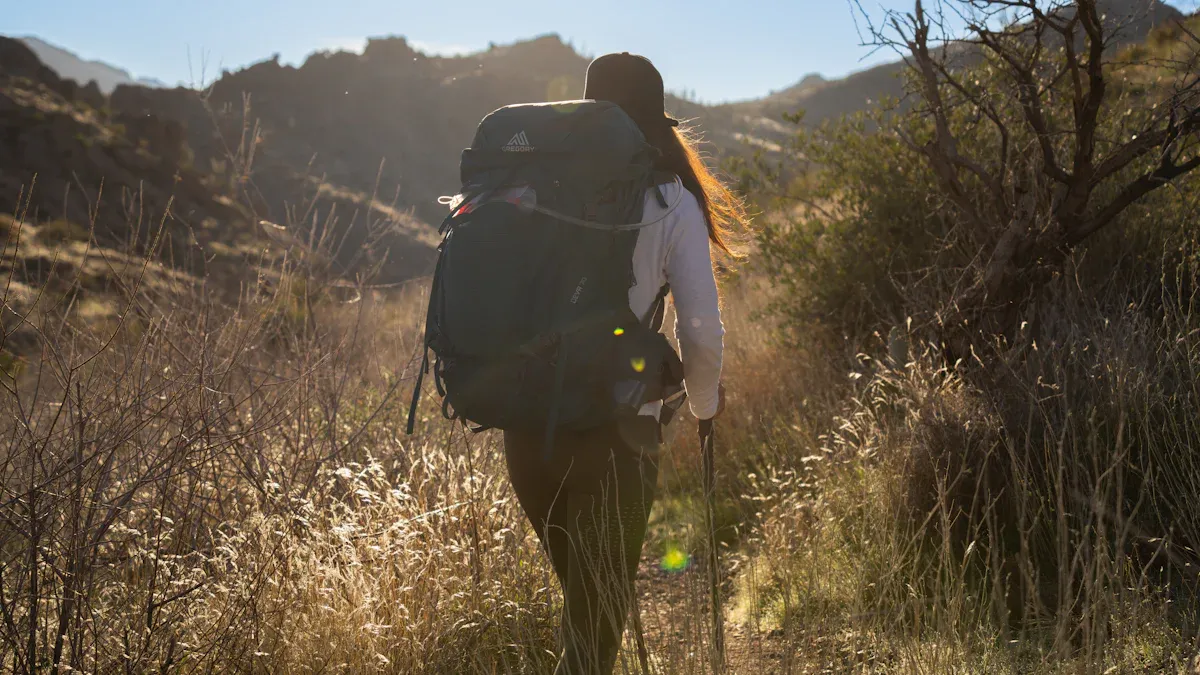
City Exploring
When you explore a city, you want a bag that matches your pace and style. You move through busy streets, hop on public transport, and visit local spots. Many people choose urban backpacks for city travel because they offer comfort and protection for your gear. These backpacks usually hold between 20 and 30 liters, which is perfect for carrying your travel essentials like a water bottle, camera, and a light jacket. You also get a sleek look that fits right in with city life.
Some travelers prefer a travel sling bag for city exploring. You can swing it to your chest and grab your phone or wallet in seconds. You stay hands-free and keep your valuables close. If you want a compact option, a travel sling bag helps you blend in and avoid looking like a tourist. For weekend city trips, smaller travel bags like the Pakt are popular because they are functional and easy to carry.
Quick comparison for city exploring:
| Bag Type | Best For | Capacity | Style |
|---|---|---|---|
| Urban Backpack | All-day city travel | 20-30 liters | Sleek, urban |
| Travel Sling Bag | Fast access, minimalism | 7-10 liters | Low-key |
Tip: Choose a travel sling bag if you want to move quickly and keep your essentials close. Pick an urban backpack if you need more space and comfort.
Short Trips
Short trips call for smart packing and easy access. You might spend a day sightseeing, visit a museum, or take a quick bus ride. A travel sling bag shines in these moments. You wear it close to your body, so you feel secure in crowded places. You can swivel the bag to your front and grab your boarding pass or phone without stopping. This design makes it easy to keep track of your travel essentials.
You also avoid bulky bags that slow you down. A travel sling bag lets you carry only what you need, which means less weight and less stress. You move through markets and busy streets without bumping into people. If you love photography or sightseeing, a travel sling bag does not get in your way or draw attention.
Why choose a travel sling bag for short trips?
- Easy access to travel essentials
- Secure against pickpockets
- Lightweight and less bulky
- Perfect for sightseeing and quick errands
Note: For short trips, you want a bag that keeps you light and organized. A travel sling bag helps you focus on the experience, not your gear.
Extended Travel
Extended travel means longer journeys and more gear. You might hike, visit several cities, or travel for a week or more. In these cases, a backpack works better than a travel sling bag. You get better weight distribution, which keeps you comfortable when you carry loads over 15 pounds. Backpacks help you handle rugged terrain and long walks. You can pack clothes, snacks, and all your travel essentials without feeling sore.
A travel sling bag is great for quick access during short excursions, but it cannot match the comfort and practicality of a backpack for extended travel. If you plan to carry heavy items or travel through different environments, a backpack gives you the support you need.
Extended travel tips:
- Use a backpack for heavy loads and long trips
- Choose a travel sling bag for lightweight carry during short outings
- Pack only the travel essentials to avoid overloading your bag
Tip: For extended travel, pick a backpack with padded straps and multiple compartments. Use a travel sling bag for day trips or when you want to travel light.
Minimalist Travel
You want to keep things simple when you travel. Minimalist travel means you only bring what you need. You focus on essentials and leave extra stuff behind. If you like to move fast and stay light, a travel sling bag fits your style. You can pack your phone, wallet, passport, and maybe a small notebook. You do not need a suitcase or a heavy backpack. You feel free and ready for any adventure.
Travel experts say that travel backpacks work well for minimalist travel. These bags let you carry your essentials without the bulk. You can walk, ride, or hop on a train with ease. Some travelers pick duffel bags because they are flexible and spacious. You can carry them in different ways. Wheeled bags seem handy, but they slow you down in busy places. You want a bag that moves with you, not against you.
A travel sling bag helps you stay organized. You find your things quickly. You do not waste time digging for your passport or boarding pass. You keep your bag close and safe. You blend in with locals and avoid looking like a tourist. You feel confident as you explore new places.
Here’s a quick look at minimalist travel bag options:
| Bag Type | Best For | Mobility | Packing Style |
|---|---|---|---|
| Travel Sling Bag | Essentials, quick access | High | Minimalist |
| Travel Backpack | Light gear, longer trips | Moderate | Organized |
| Duffel Bag | Flexible packing | Moderate | Spacious |
| Wheeled Bag | Heavy loads, airports | Low | Bulky |
Tip: Choose a travel sling bag if you want to move fast and keep things simple. Pick a travel backpack for longer trips when you need a bit more space.
You make every travel moment count. You do not worry about heavy loads or lost items. You enjoy the journey and focus on the experience.
Outdoor Activities
You love outdoor travel. You hike, bike, or explore nature trails. You need a bag that matches your adventure. A travel sling bag works for short hikes or city parks. You carry water, snacks, and your phone. You move easily and keep your hands free. You do not feel weighed down.
If you plan a longer outdoor travel, a backpack gives you more support. You pack extra clothes, food, and gear. You feel comfortable on long walks. The backpack spreads the weight and protects your back. You stay organized with special pockets for water bottles and maps.
Some outdoor travel fans use travel sling bags for quick trips. You grab what you need and go. You do not stop to adjust your bag. You keep your energy up and enjoy the scenery. For camping or mountain travel, you want a backpack. You carry everything you need for the day.
- Travel sling bags work best for short outdoor adventures.
- Backpacks help with longer travel and heavier loads.
- You pick the bag that fits your activity and travel style.
Note: Always check the weather and your route before you travel outdoors. Pack only what you need and keep your bag light.
Conclusion
You want a bag that fits your life. Sling bags work best for quick trips and light loads. Backpacks help when you need more space and comfort. Think about your daily routine and what you carry. Pick the style that matches your needs.
We are the manufacturer—offering custom design, OEM/ODM, and wholesale for sling bags and backpacks. Customize fabrics, colors, sizes, hardware, pockets, and branding (silkscreen/heat transfer/embroidery). Get factory-direct pricing, fast sampling, and reliable lead times.
FAQ
What is the main difference between a sling bag and a backpack?
You wear a sling bag across your body, usually on one shoulder. A backpack has two straps and sits on your back. Sling bags work best for light loads. Backpacks carry more and feel better for heavy items.
Can I use a sling bag for school or work?
You can use a sling bag if you only carry a few things, like a tablet, notebook, and pens. If you need to bring a laptop, books, or lunch, a backpack gives you more space and comfort.
Are sling bags safe to use in crowded places?
Yes! You can wear a sling bag on your chest, so you keep your valuables close. Many sling bags have hidden pockets and locking zippers. This makes it harder for pickpockets to reach your things.
Which bag is better for travel?
If you want quick access and light packing, a travel sling bag works great for city trips. For longer journeys or heavy loads, you should pick a backpack. It gives you more space and better support.
Will a sling bag hurt my shoulder?
A sling bag can cause shoulder pain if you carry too much weight or wear it for a long time. Try to pack only what you need. Switch shoulders sometimes to avoid discomfort.
How do I keep my bag organized?
Look for bags with special pockets and dividers. You can use small pouches for your keys, phone, and wallet. Some bags have built-in organizers. This helps you find things fast.
Can I customize my bag?
Yes, many brands let you choose colors, materials, and extra features. You can add detachable straps or special pockets. Custom bags help you match your style and needs.
What should I pack in my everyday carry bag?
Pack only what you use every day. Most people carry a phone, wallet, keys, water bottle, and maybe a small notebook. If you travel, add your passport and charger. Keep it simple for comfort.

